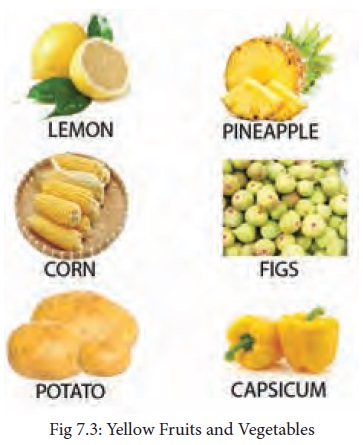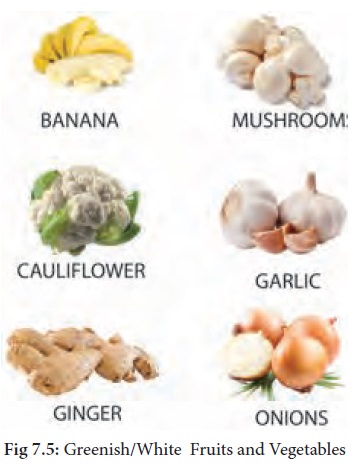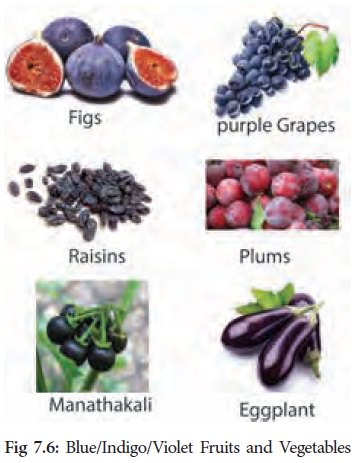Chapter: 11th Nutrition and Dietetics : Chapter 7 : Recent Concepts in Nutrition
Functional components of Fruits and vegetables
Functional
components of Fruits and vegetables
Red Fruits and Vegetables
The
phytochemicals
present in red coloured fruits and vegetables
are carotenoids and
anthocyanins. One of the most abundant carotenoids present in fruits is
Lycopene, which helps reduce damage from free radicals in our body and it
prevents heart diseases, cancer, prostrate problems and reduces the skin damage
from the sun. Red fruits and vegetables are also often very high in vitamin C,
which helps in cellular renewal in the body.

Orange Fruits and Vegetables
Carotenoids are the
powerful phytochemicals in orange coloured fruits and vegetables, and they give
the fruits the bright color. Carotenoids repair DNA and help prevent cancer and
heart disease, as well as strengthening our vision.
These orange foods
also give the requited amount of potassium , vitamin A, B complex vitamin which
keeps eyes and skin healthy and protects against infections. They also boost
the immune system because of the high content of vitamin C.

Yellow Fruits and Vegetables
Yellow foods are high
in antioxidants like vitamin C and phytosterols. Vitamin C keeps our
teeth and gums healthy, helps to heal cuts and wounds improves the mucus
membranes (like when we have colds), helps to absorb iron, prevents
inflammation, improves circulation, and therefore prevents heart disease.

Green Fruits and Vegetables
These foods have the
phytochemicals like Terepenes, Sulforaphane and Indoles, which both
prevent cancer. They are also good for the circulatory system and are good
sources vitamin B and minerals. Yellow green vegetables like figs, grapes, cucumber etc have
carotenoids and lutein that help to prevent cataracts and eye disease, as well
as osteoporosis.

Greenish/White Fruits and Vegetables
The strong phytochemical in these whitish/greenish vegetables is called allicin and allium, which give an anti-bacterial, anti-fungal, and anti-viral chemical environment in the body. It also contains Theols, the sulphur containing class of phytonutirents. All phytochemicals in the greenish/white list of fruits and vegetables helps maintain low cholesterol levels in the body preventing heart diseases.

Blue/Indigo/Violet Fruits and Vegetables
The blue, indigo, and
violet coloured fruits andvegetablesareknownfortheiranti- aging properties.
These foods are loaded with of antioxidants, specifically anthocyanins and
phenolics which prevents free radical damage. Some blue and purple fruits
and vegetables are also high in vitamin C. They improve memory function and
urinary tract health.

Related Topics